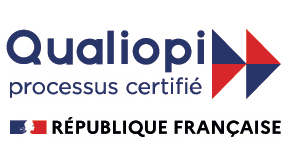There are a multitude of French exams: DELF, DALF, TEF, TCF – among many others! Faced with this panel of exams, you could easily get confused. Our little guide to French exams is here to help you! But first of all, let’s remember that a French exam mostly serves to :
- Certify your level of French.
- Enrich your professional skills.
- Study in France or in a French-speaking university or school.
- Work in France or in a French-speaking country.
- Obtain the French nationality or a residence permit.
Here is a list of the main French exams and their objectives.
DELF / DALF
 What is it? The DELF (diplôme en langue française) and the DALF (diplôme approfondi en langue française) are official diplomas awarded by the FEI (France Education International) and the French Ministry of Education.
What is it? The DELF (diplôme en langue française) and the DALF (diplôme approfondi en langue française) are official diplomas awarded by the FEI (France Education International) and the French Ministry of Education.
What for? These diplomas are internationally recognised and are valid for an unlimited period of time. They facilitate professional integration throughout the world and allow you to enter French universities (B2, C1 diplomas) and Grandes Ecoles (engineering, business). They are often required to enter other French-speaking universities (Switzerland, Belgium, Canada).
Where to train? LSF organises preparation courses for the DELF B1 and B2, and DALF C1 and C2 French exams. During the preparation course, the methodology, lexicon and specific themes for these exams are studied. The 4 skills assessed on the day of the exam are worked on thoroughly: Oral comprehension, Written comprehension, Oral production and Written production. Mock exams are organised by LSF teachers in order to prepare for the exam in the best possible way.
Where to take them? LSF can help you register for the DELF or DALF exams in one of the official exam centres.
TEF/ TCF
What is it? The Test d’évaluation de français (TEF) and the Test de connaissance du français (TCF) are international reference French exams that measure the level of knowledge and skills in French. The results are valid for two years. The objective is to assess French skills using a scale of 7 levels, from level 0 (most basic skills) to level 6 (complete mastery). This scale refers to the 6 proficiency levels A1 to C2 of the Council of Europe’s Common European Framework of Reference for Languages (CEFR) and the 12 Canadian Language Benchmarks (CLB).
What for? The TEF exam is indispensable if you wish to :
- Study in France (TEF to study in France)
- Live in France (Residential TEF/ TCF residence permit)
- Obtain the French nationality (TEF Naturalisation/ TCF ANF)
- Immigrate to Canada (TEF Canada)
- Immigrate to Quebec (TEFAQ)
- Prove your level of French in a professional context.
Where to train? We offer online training solutions. For more information click here !
Where to take the exam? LSF Montpellier is an examination centre approved by the CCIP (Paris Chamber of Commerce and Industry). We organise examination sessions every month.
DFP
 What is it? The Diplomas in Professional French are designed by the CCIP (Paris Chamber of Commerce and Industry) for companies and young professionals.
What is it? The Diplomas in Professional French are designed by the CCIP (Paris Chamber of Commerce and Industry) for companies and young professionals.
What for? A Diploma in Professional French (DFP) enhances your ability to work in French and is a real asset on your curriculum. This diploma allows you to evolve within your company or it can facilitate access to a new job. Indeed, in an increasingly competitive world market, French is a strength.
Where to train? LSF allows you to prepare for and take the exam in the following fields: Business, Tourism-Hotels-Restaurants and International Relations.
During the preparation course, you will study the lexicon and specific themes for these exams. You will work on and develop the 4 skills you will be assessed on the day of the exam: Listening, Reading, Speaking and Writing. Mock exams are organised by LSF teachers certified and approved by the CCIP (Paris Chamber of Commerce and Industry) to prepare you as well as possible for the exam.
Where to take the exam? LSF Montpellier is a DFP-approved examination centre by the CCIP (Chambre de Commerce et d’Industrie de Paris)
For more information on our training courses click here.
Training courses for French tests and exams by country: ABIBAC, BACHIBAC, ESABAC, A-LEVEL, LEAVING-CERT and TRANSITION YEAR

- ABIBAC / BACHIBAC/ ESABAC
What is it? These courses are prepared in high schools with a binational section. This system allows the French baccalaureate to be awarded simultaneously with its German (ABIBAC), Spanish (BACHIBAC) and Italian (ESABAC) equivalents. Pupils who obtain these examinations can access French higher education and higher education in the country in question.
Preparing for the exams: there are many options to prepare for the exams, based on individual tuition where the skills required for the exam are worked on in a specific way. For more information click here.
- A-LEVEL
What is it? The A-level, short for Advanced Level, is an examination taken by young Britons in their last two years of secondary education. Depending on the language chosen, this exam includes a test in French.
Preparing for it : LSF offers a preparation course adapted to the specifics of the A-Level exams. The training focuses on the 4 skills assessed on the day of the exam, namely : Oral comprehension, Written comprehension, Oral production and Written production.
For more information about our training click here.
- LEAVING-CERT and TRANSITION YEAR
What is it? The Leaving Certificate Examination is more commonly known as the Leaving Cert. It is the final examination in the Irish secondary education system. Depending on the language chosen, it includes a test in French.
Preparing : At LSF we offer a preparation course adapted to the specificities of the Leaving Certificate and Transition year exams. The methodology, lexicon and specific themes for these exams are worked on in depth, all to be ready on the day of the exam. The standard courses allow you to deepen and reinforce your knowledge of general French, enrich your lexicon and develop your oral fluency. During the preparation course you study the methodology, the lexicon and the specific themes of your exam. And you develop the skills assessed on the day of the exam: Oral comprehension, Written comprehension, Oral production and Written production.
For more information about our preparation click here.
We hope this article has helped you! Do not hesitate to leave us your questions in comments!






